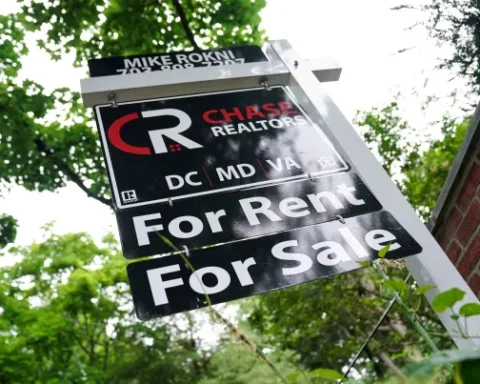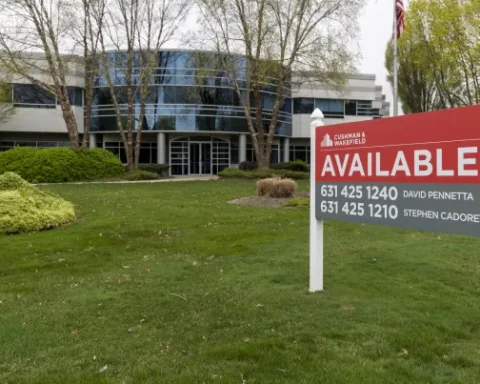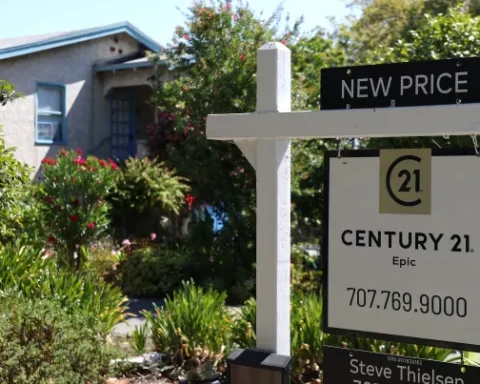Selling a home can be an unexpectedly expensive endeavor. According to a new report by Clever Real Estate, the typical cost to sell a house in 2024 is about $54,616. This figure has surprised many homeowners, with 42% of surveyed sellers noting that their costs were higher than anticipated.
“When people think about selling their home, they’re thinking about how much money they’re going to make from their home sale, and not how much they’re going to spend,” said Jaime Dunaway-Seale, data writer at Clever Real Estate. “That cost does end up being very high and then they’re caught off guard and disappointed because that’s going to take a cut out of their profit.”
Breakdown of Selling Costs
A significant portion of the selling costs comes from real estate agent commissions, which account for about 39% of the total expenses, or $21,603. However, a landmark case regarding commission fees is set to change this landscape. “If a seller decides not to pay the buyer’s real estate agent’s commission, it could drop their cost by about $10,000,” Dunaway-Seale explained.
Other typical expenses include home repairs ($10,000), closing costs ($8,000), buyer concessions ($7,200), moving costs ($3,250), marketing and advertising costs ($2,300), and staging costs ($2,263).
Mark Hamrick, senior analyst at Bankrate, advised sellers to focus on maximizing the efficiency of the transaction. “Ultimately, [with] many of these fees, there’s no harm in trying to negotiate, and that includes real estate commissions,” he said.
Renovations and Repairs: A Necessary Expense
Cost-constrained homebuyers today are less willing to take on homes that need significant renovations. According to the Clever Real Estate report, sellers often incur expenses for pre- and post-listing repairs, which can total around $10,000.
“There are plenty of costs involved,” said certified financial planner Kashif A. Ahmed, founder and president of American Private Wealth. “You might have to do some renovations to sell it.” This sentiment is echoed by Daryl Fairweather, chief economist at Redfin, who noted that buyers often request repairs after home inspections.
Sellers need to be prepared for these costs, especially in slower markets where buyers have more bargaining power. “There may be a situation where a buyer might say, ‘Well, I want you to fix this before I buy it,’ and then you’re like, ‘Well, in the interest of getting rid of this place … I’ll spend the extra money,’” Ahmed said.
Upcoming Changes in Real Estate Commissions
The landscape of real estate transactions is poised for significant changes. The National Association of Realtors (NAR) agreed to a $418 million settlement in an antitrust lawsuit, leading to the removal of mandatory commission payments for buyers’ agents. This change, effective August 17, 2024, could save sellers substantial amounts of money.
“We went ahead and included it [in the Clever Real Estate analysis] now because, as of right now, the rule change has not yet gone into effect,” said Dunaway-Seale. Real estate attorney Claudia Cobreiro highlighted that while sellers might not be obligated to pay the buyer’s agent commission, many might still do so to attract buyers.
Strategies to Reduce Selling Costs
There are several strategies homeowners can employ to reduce selling costs. One option is to sell without a real estate agent, although this often results in a lower selling price. “Among sellers who did not hire an agent, 59% did so to save money,” Dunaway-Seale noted. However, sellers with agents typically sold their homes for about $34,000 more.
Another approach is to reduce concessions, staging, and marketing costs. “If sellers don’t really care about selling their home quickly, they could possibly offer fewer concessions,” Dunaway-Seale said. Lowering the budget for staging and marketing can also cut expenses.
While selling a home can be costly, understanding and preparing for these expenses can help homeowners maximize their profit and streamline the selling process.







